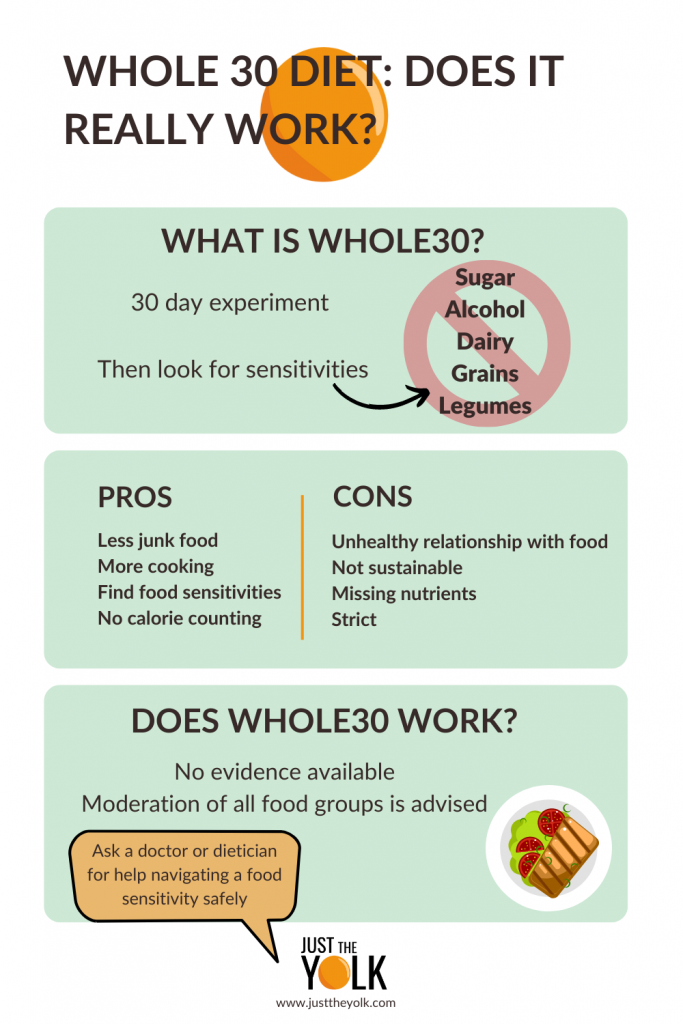This is a summarized version of a published article from Live Science.
The Yolk
- Experts disagree with Whole30 more than agree
- Claimed to be a “scientific experiment” for the ideal diet to help find food sensitivities, reduce inflammation and cravings
- Whole30 is done for 30 days
- Sugar, alcohol, legumes, dairy, grains are not allowed
- Meat, veggies, fruits, nuts, and seeds are allowed
- After 30 days:
- The not allowed food groups are each added for 10 days at a time
- Then check for any symptoms from each group
- Pros
- Naturally less junk food consumed
- May cook more
- May find food sensitivities
- No calorie counting
- Could help with IBS (through a similar diet)
- Cons
- Labeling foods good and bad, a poor relationship
- Not sustainable
- Risky for eating disorders
- No nutrients from dairy or grains
Perspective
- Whole30 may find food sensitivities
- Consult a doctor and registered dietician for assistance with suspected food sensitivities and allergies
- Whole30 may work for weight loss due to less junk food, but people generally resume their normal diets afterwards
- Most importantly, Whole30 may not work for creating a healthy relationship with food
- There’s no reason to avoid a food group for the average person
- Dairy, legumes, and grains are full of beneficial nutrients
- Moderation of all food groups is best for a well balanced, sustainable diet
Resources


